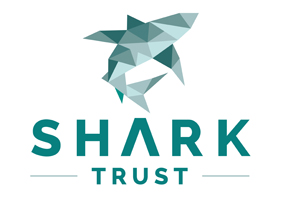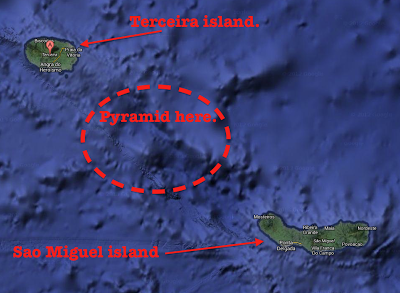Creature Feature: Cownose Ray
 In this series, the Shark Trust will be sharing amazing facts about different species of sharks and what you can do to help protect them.
In this series, the Shark Trust will be sharing amazing facts about different species of sharks and what you can do to help protect them.
This month we’re showing off one of the lesser-known rays: the Cownose Ray, so-called due to the two lobes on the top of their head. When viewed from above, these lobes resemble a cow’s nose.
The Cownose Ray is a species of eagle ray (which also includes the Bull Ray, Banded Eagle Ray and others). They are often mistaken for sharks from the beach, due to the tips of their fins sticking out of the water (resembling the dorsal fin of a shark).
Typically, brown-backed, with a whitish or yellowish belly, it’s the Cownose Ray’s shape that is the key identifier; with its broad head, wide-set eyes, and pair of lobes on its subrostral (in front of the “face”) fin.
They typically feed on clams, oysters and other invertebrates. Preferring to feed in early morning or late afternoon, when waves are calm, and visibility is good. They uncover their prey by stirring up the sand and sediment with their wings. Once located, Cownose Rays can create a vacuum with their mouths to suck up their prey from the seabed. They have a set of concrete-like dental plates which are perfect for crushing shells . In addition to their strong mouths, the Cownose Ray also have a few defensive abilities too. They are stingrays and have a barb on the base of their tails to defend themselves, which produces a toxin that injures the aggressor.
Photo by David Clode on Unsplash
Social creatures, they typically swim in groups. They also migrate extremely long distances, often in schools of up to 10,000. Their migration is from the Gulf of Mexico to Trinidad, Venezuela and Brazil. Atlantic migration consists of the rays moving north in late spring and moving south in late autumn. Even though scientists can track their migration well (even from airplanes as the schools can be seen from the sky!), the reason for their migration is still a mystery. It’s unknown if it’s due to feeding or a pre-mating activity
They reach sexual maturity at 6 to 7 years and can live up to ~21 years. Females give birth to live young, following a11-12 months gestation period.
They are listed as Vulnerable, due to extensive overfishing – mainly in the Caribbean. Whilst the meat from Cownose Rays is not in-demand and thus they are not targeted by largescale operations. They are overfished in the Caribbean and along the Venezuelan coast – with declines in the population of up to 49% in the last 43 years.
SCIENTIFIC NAME: Rhinoptera bonasus
- FAMILY: Rhinopteridae
- MAXIMUM SIZE: ~110 cm wide
- DIET: Clams, oysters, hard clams, crustaceans and other invertebrates
- DISTRIBUTION: Western Atlantic from southern New England to northern Florida (USA) and throughout the Gulf of Mexico, migrating to Trinidad, Venezuela, and Brazil.
- HABITAT: Brackish and marine habitats, usually in shallow waters but have been found up to a depth of 60 m.
- CONSERVATION STATUS: Vulnerable
Cownose Ray Activity BundleDiscover more with the Cownose Ray Activity Bundle. Brought to you by award-winning outdoor education provider – The Great Out-Tours. Created for children and adults in care homes, these bundles of fun will provide hours of entertainment. Wordsearches, jigsaws, arts and crafts, educational videos, a family quiz and so much more. All jammed packed into this bundle for just £1, with 15p going to the Shark Trust! |
For more amazing facts about sharks and what you can do to help the Shark Trust protect them visit the Shark Trust website by clicking here.
Header Image: David Clode on Unsplash




















